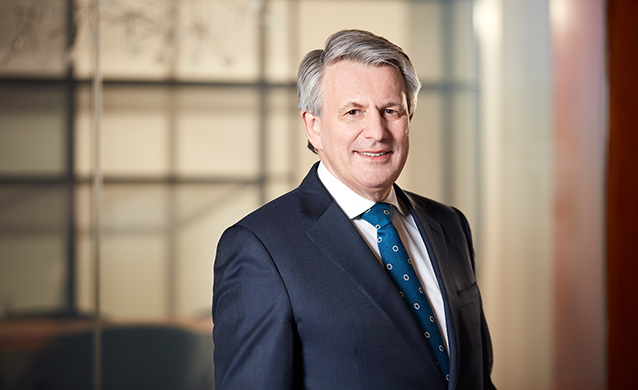Growing gas and power in Australia
Special report
Shell is one of the largest foreign investors in Australia, with a presence that stretches back more than a century in exploration, petrochemicals and natural gas.
Today, we continue to produce gas and hone our liquefied natural gas (LNG) expertise through deploying technologies in onshore and offshore activities.
We work with partners to responsibly deliver energy by keeping safety, communities and the environment at the heart of our projects.
Visit www.shell.com.au to read more on Shell in Australia.
Cleaner energy future
We are working to play our part in the transition to a low-carbon future and Australia is central to this effort. One way to do this is to start to decarbonise the electricity sector through investments in renewable sources, such as solar or wind generation.
We are building our first industrial-scale solar project in Australia in Queensland, which is designed to generate around 120 megawatts of solar electricity from about 400,000 photovoltaic panels.
Through our acquisition of sonnen, a leader in smart home and business solar energy storage systems, we are selling batteries in Australia that ensure customers with solar panels have a constant supply of clean electricity. Customers can store their surplus solar power during the day and use it at night.
Shell Australia has also taken a 49% equity stake in ESCO Pacific, one of Australia’s most successful developers of utility-scale solar farms.
Delivering natural gas responsibly
Gas is the cleanest-burning hydrocarbon and is an abundant, secure and readily available source of energy.
Recognition of the role of LNG continues to grow as the world tackles poor air quality and climate change. Global demand for LNG has tripled since 2000. There are now 42 countries that import LNG, up from 10 at the start of 2000. Shell supplies 76 customers in 27 of these countries.
We are working in Australia to unlock its rich onshore and offshore gas resources to help meet this energy demand. For example, the Shell-operated QGC project in Queensland, Eastern Australia, produces natural gas from the Surat Basin and supplies domestic and international markets. In 2019, QGC shipped its 500th cargo of LNG from its plant on Curtis Island.
We are working hard to deliver energy in Australia safely and responsibly. For example, we ran a safety programme at QGC focused on our wells business that improved its safety performance, recording a 40% decrease in total recordable case frequency since the programme was introduced in 2018 (see Process safety). We also ensure we have the necessary resources to deal with spills, leaks, fires and explosions, both offshore and onshore.
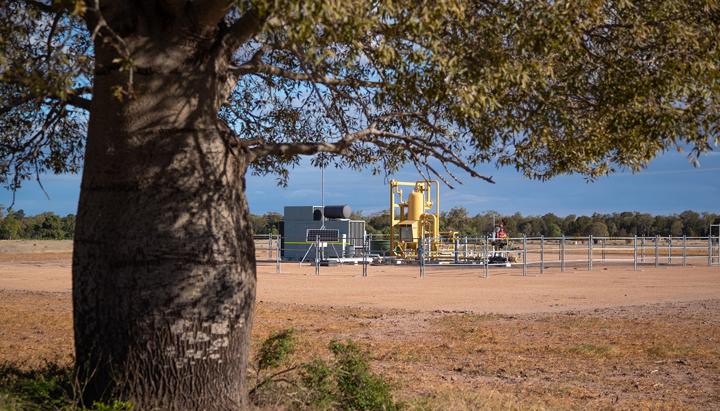
QGC produces natural gas and supplies it to domestic and international markets.
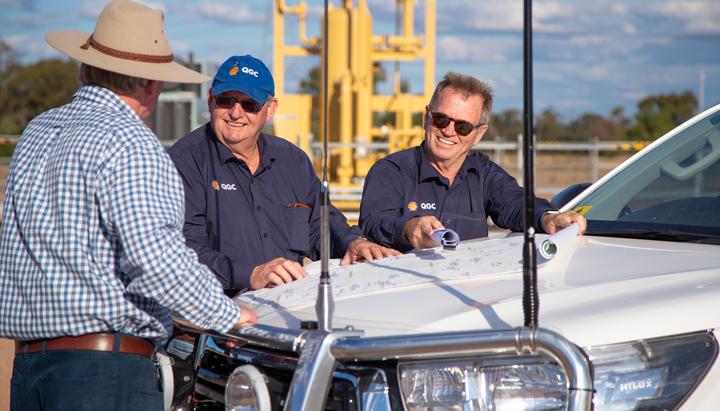
In 2019, we engaged with local residents near our QGC natural gas facility in Central Queensland, Australia.
We are also expanding the role of natural gas as it has significant advantages when used to produce electricity alongside renewable sources of energy. Gas-powered turbines, which ramp up and ramp down quickly, can compensate for dips in solar or wind supply as well as rapidly respond to surges in demand.
In 2019, Shell Energy Australia acquired ERM Power, a leading commercial and industrial electricity retailer in the country with two gas-fired generation plants.
Carbon capture and storage
Australia is central to our investments in carbon capture and storage projects.
We are a partner in the Chevron-operated Gorgon LNG CCS project in Australia (Shell interest 25%), which started up in August 2019 and is the world's largest CCS project. At full capacity, Gorgon is expected to capture up to 4 million tonnes of CO2 each year. It is expected that 100 million tonnes of CO2 will be captured and stored over the life of the project. During the pre-start-up and commissioning checks of the injection project, some issues were identified that needed to be resolved before injection started.
Biodiversity and natural solutions
We carefully consider and aim to respond to any potential impacts our Australian activities may have on biodiversity and ecosystems.
For example, QGC continues to manage the 10,000-hectare Valkyrie property, a large area of open woodland, as part of its strategy to offset its carbon emissions and impact on biodiversity. This includes using nature-based solutions that protect or redevelop ecosystems and help us offer our customers the opportunity to offset their emissions using carbon credits.
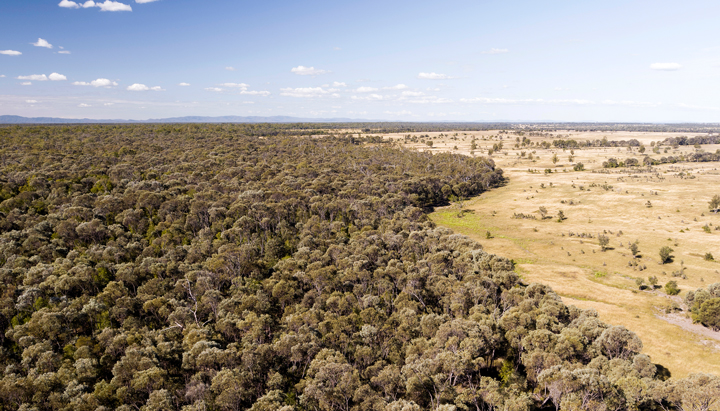
The Shell-operated QGC natural gas project in Central Queensland manages the 10,000-hectare Valkyrie property, a large area of open woodland, as a carbon and biodiversity offset.
Valkyrie is home to Freyja, Shell Australia’s first nature-based solutions project. Freyja is an 800-hectare endangered native forest regeneration project that was registered under the Carbon Credits (Carbon Farming Initiative) Act 2011 in 2019. Over the next 25 years, Freyja is expected to sequester 90,000 tonnes of CO2 equivalent and generate Australian Carbon Credit Units.
Valkyrie is also home to several at-risk species, including the Greater Glider marsupial. In 2019, we developed effective biodiversity strategies to help protect the glider and other species. We also developed a significant biodiversity management plan.
Boosting economic development
Our contribution to Australian society comes in many forms. It includes employing more than 2,000 people directly and supporting 21,800 jobs. Many of these people live, work and raise their families close to our operations.
We are also helping to create employment opportunities for indigenous peoples through our local content and skills development programmes. For example, Shell Australia partners with the Wirrpanda Foundation in Western Australia to help improve the physical fitness and self-confidence of unemployed Aboriginal job seekers. The programme has so far helped 130 people secure jobs.
We have partnered with Queensland Museum to connect teachers with science specialists from the museum to build their understanding of science, technology, engineering and mathematics subjects.
We also aim to support local businesses inside and outside the energy industry.
For example, our Emerging Exporters programme helps agribusinesses in Queensland find new domestic and international customers. It connects them with leading food experts in the region, who provide mentoring and coaching through workshops and tailored trade missions.
The programme helped family-owned cattle farm Four Daughters Premium Black Angus export its beef from Meandarra in rural Queensland to China.
 Climate change
Climate change
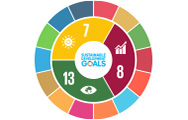 Sustainable development goals
Sustainable development goals
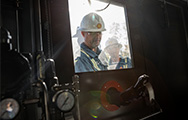 Safety
Safety
 About our data
About our data
